 Petzlover
Petzlover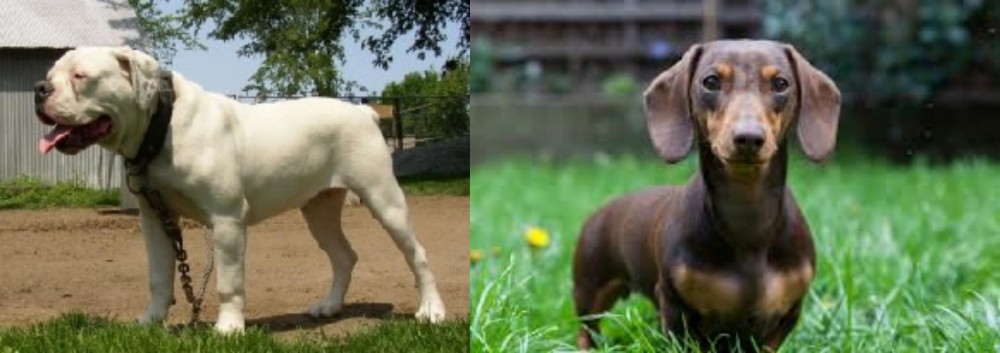 Hermes Bulldogge is originated from United States but Miniature Dachshund is originated from Germany. Hermes Bulldogge may grow 45 cm / 18 inches higher than Miniature Dachshund. Hermes Bulldogge may weigh 63 kg / 139 pounds more than Miniature Dachshund. Both Hermes Bulldogge and Miniature Dachshund has almost same life span. Hermes Bulldogge may have more litter size than Miniature Dachshund. Both Hermes Bulldogge and Miniature Dachshund requires Low Maintenance.
Hermes Bulldogge is originated from United States but Miniature Dachshund is originated from Germany. Hermes Bulldogge may grow 45 cm / 18 inches higher than Miniature Dachshund. Hermes Bulldogge may weigh 63 kg / 139 pounds more than Miniature Dachshund. Both Hermes Bulldogge and Miniature Dachshund has almost same life span. Hermes Bulldogge may have more litter size than Miniature Dachshund. Both Hermes Bulldogge and Miniature Dachshund requires Low Maintenance.
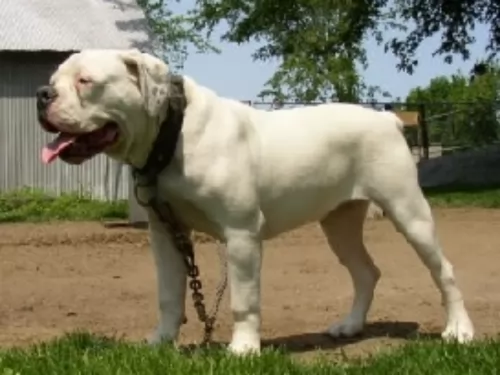 The Hermes Bulldogge is not a breed in itself, but is actually a line within the English Bulldogge line. The Hermes family in the United States bred this line for several years. The Hermes Bulldogge line is the largest of the re-creations from the English Bulldogge. They are inspired by the arena dogs from the days of the Roman Empire. Greg and Linda Hermes have bred healthy, smart, resilient and agile dogs. The desire of the Hermes was an attempt at recreating the 17th century dog.
The Hermes Bulldogge is not a breed in itself, but is actually a line within the English Bulldogge line. The Hermes family in the United States bred this line for several years. The Hermes Bulldogge line is the largest of the re-creations from the English Bulldogge. They are inspired by the arena dogs from the days of the Roman Empire. Greg and Linda Hermes have bred healthy, smart, resilient and agile dogs. The desire of the Hermes was an attempt at recreating the 17th century dog.
They used a variety of breeds to create the Hermes Bulldogge, most of whom are never disclosed. Some of the dogs that were probably used include: English Mastiffs, American Bulldogs, Old English Bulldogges, and pit Bull Terriers. This family of dogs are playful, friendly, and good family dogs. They have a strong prey drive which makes them good hunters but not as good around other small animals or small children. The Hermes have been breeding the Hermes Bulldogge since since 1983. The puppies are all hand raised, child friendly with great health.
When discussing the Hermes Bulldogge, one must go back to the root of the English Bulldogge. That breed comes originally from England and various lines have been recreated by various breeders. The breeding of the Old English Bulldogge with Mastiffs and Pits lead to other lines that the breeders called Old English. But most fanciers believe that only two lines of the original Old English Bulldogge remain and that is the Leavitt and the Hermes.
Some form of bulldog has been in existence since 700 years ago and as it was mixed with a variety of other breeds it took on other forms over time. The English Bulldogge was a definite couch potato. Instead of being bred for a job or look, the Bulldogge was developed with temperament, ability and health in mind. This has made for a great family dog without a lot of veterinarian bills.
 The Dachshund breed is ancient and was developed in Germany sometime around the 16th century.
The Dachshund breed is ancient and was developed in Germany sometime around the 16th century.
It was in 1870 that Dachshunds first came to the United States to be used for hunting. During the 19th century, German hunters wanted smaller dachshunds.
The Dachshund was crossed with toy terriers. The coat comes in three coats – smooth-, long-haired and wire-haired. There is just one size of Miniature Dachshund in the UK and the United States.
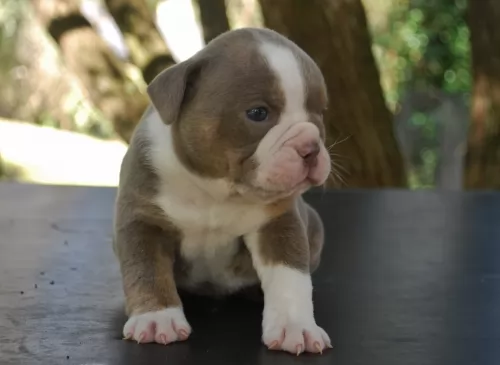 The Hermes Bulldogge, much like the original Olde English Bulldogge, is taller, healthier, more athletic than the original English Bulldog. They are medium height, with a large head, a strong body and a deep, wide chest and broad shoulders. Tails might or might not be docked but the ears are never docked. They n have a moderate amount of wrinkles and a longer, less smashed face than the original. It is easier for the Hermes Bulldogge to breath, to fly and to live in warmer environments that it is for the English Bulldogge. His eyes are lower in his head but in the front center.
The Hermes Bulldogge, much like the original Olde English Bulldogge, is taller, healthier, more athletic than the original English Bulldog. They are medium height, with a large head, a strong body and a deep, wide chest and broad shoulders. Tails might or might not be docked but the ears are never docked. They n have a moderate amount of wrinkles and a longer, less smashed face than the original. It is easier for the Hermes Bulldogge to breath, to fly and to live in warmer environments that it is for the English Bulldogge. His eyes are lower in his head but in the front center.
They are very dark almost black. Eyelids should cover the white of the eye and they have rounded cheeks. They have a short muzzle and short face. Broad, thick lips finish out the face with very large, square, broad jaws.
 Coming in a range of colors such as red, black, black and tan, cream, chocolate etc, the coat of the Miniature Dachshund can be long or short. Both male and females stand at between 13 – 18cm and weigh between 3 and 5kg.
Coming in a range of colors such as red, black, black and tan, cream, chocolate etc, the coat of the Miniature Dachshund can be long or short. Both male and females stand at between 13 – 18cm and weigh between 3 and 5kg.
These dogs are characterized by the long back and very short legs with floppy ears and a long tail. The face is always bright and alert.
The Miniature Dachshund is a small dog and can happily adapt to life in the city as well as in the countryside. This is because with their exercise needs, they don’t require a huge garden but can in fact, exercise indoors.
They’ve always been bred to hunt and are independent and feisty. They’re also intelligent and will do well with training and socialization.
They are also devoted to their families and are known to bark when strangers come near their family. They’ve got a lot of energy and just love being involved with games or going on a walk. Consider him when going on a walk though as his little legs have to take many more steps as compared to your one step.
They can be stubborn, but are friendly, lovable little pets, they aren’t suited for homes with toddlers unless the children have been taught to be exceedingly gentle and kind with animals, especially small, fragile ones like this. They can so easily get hurt.
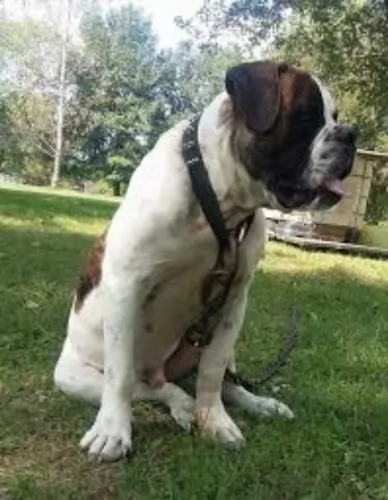 If socialized properly this line of bulldog is harmful to me.
If socialized properly this line of bulldog is harmful to me.
Strong and athletic, his strength and stamina.
He is not very adaptable. Apartments are not good for this dog. He needs to run and if possible to hunt.
He is very intelligent but stubborn which affects his learning ability.
 The Miniature Dachshund has lots of qualities which make him such a splendid pet. He is intelligent, brave, bold and loyal with his human family.
The Miniature Dachshund has lots of qualities which make him such a splendid pet. He is intelligent, brave, bold and loyal with his human family.
He is fun-loving and energetic and thrives on lots of games and walks. He is versatile in nature and also loves to take things easy indoors with his family.
These little dogs form strong bonds with their family and don’t like to be left on their own. When you have one of these as a pet you’re allowing a whole lot of joy into your home.
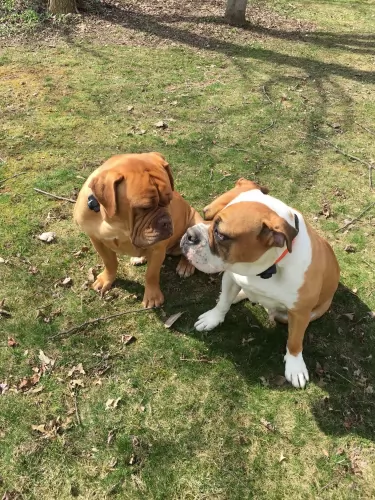 The Hermes Bulldogge is healthier than most bulldogs. His face is not as smashed and he is not as wrinkled. He can breathe easier than other Bulldogs. The two major concerns are hip dysplasia and bloat.
The Hermes Bulldogge is healthier than most bulldogs. His face is not as smashed and he is not as wrinkled. He can breathe easier than other Bulldogs. The two major concerns are hip dysplasia and bloat.
Hip Dysplasia also some elbow dysplasia: can cause lameness and arthritis
Terminal unless treated immediately. Can be prevented by not feeding large meals before or after heavy exercise.
 Be very careful with the Miniature Dachshund because of their long backs. You don't want to be allowing him to be jumping off chairs etc as their backs are prone to injury. To solve the problem you can buy special stairs and ramps for small dogs.
Be very careful with the Miniature Dachshund because of their long backs. You don't want to be allowing him to be jumping off chairs etc as their backs are prone to injury. To solve the problem you can buy special stairs and ramps for small dogs.
They can live to be between 12 and 14 years of age when looked after well.
A disease that is fairly common in the Miniature Dachshund is Intervertebral Disc Disease, a condition where the cushioning discs between the vertebrae of the spinal column bulge or burst into the spinal cord space, pressing on the nerves and causing nerve damage and worse, paralysis.
 When feeding a Hermes Bulldogge puppy be sure you feed puppy meal for bulldogs or medium dogs. For first year fee 2-4 times a day 2 cups food.
When feeding a Hermes Bulldogge puppy be sure you feed puppy meal for bulldogs or medium dogs. For first year fee 2-4 times a day 2 cups food.
Feed the adult a solid adult dry food. 2 cups twice a day.
Better health than most lines of Bulldogs. Few wrinkles and less problems breathing as he doesn’t have a smashed face.
He doesn’t need a lot of exercise but daily walks and lots of play time. He can enjoy Lure Coursing obedience, agility and obedience
 Dachshunds can put on weight quickly and you want to avoid this at all costs as extra weight can put strain on the back.
Dachshunds can put on weight quickly and you want to avoid this at all costs as extra weight can put strain on the back.
If you feed your Mini Dachshund commercially manufactured dog food, choose the best quality ones, high in vitamins and minerals and avoid some of the cheaper ones that use unwholesome fillers, colorants, sugar and lots of salt, all of which can be toxic for your pet.
Of course home-made food is always best, but not any foods either. It is best with any dog to keep their foods simple and consistent so as to avoid stomach problems. Chopped up boiled chicken, brown rice or pasta and some cooked vegetables such as potatoes carrots and spinach will do wonders for him. Make sure that there is a constant supply of fresh, cool water for him.
A good brush of the coat twice a week will do fine for your Miniature Dachshund. Remember to check him over for fleas and ticks when you brush him and to feel for any unusual lumps. Keep the nails trimmed.
Check both eyes and ears for infection. There are ways to keep the inside of long eared dog breeds clean and dry, but if you’re unsure there are always professional groomers who will do the job for you, and clean their teeth at the same time. You can brush your dogs teeth 2 or 3 times a week to avoid plaque build up, gum infection and tooth loss.